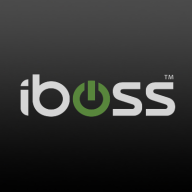


Cisco Umbrella and Zscaler Zero Trust Exchange Platform are competitive in the cybersecurity domain. Cisco Umbrella appears to have the edge due to its simpler deployment process, whereas Zscaler is recognized for its zero trust cloud-based model.
Features: Cisco Umbrella offers DNS-based protection, security for remote workers, and granular web content filtering. It is known for its ease of deployment and effective threat management. Zscaler provides comprehensive security via its cloud-based zero trust models and is lauded for VPN-like functionalities minus the typical VPN complexities.
Room for Improvement: Cisco Umbrella could enhance policy scheduling and integration with external threat feeds and SIEM products. Improved local data center presence is also desired. Zscaler users suggest the need for more affordable pricing, enhanced legacy system support, and better integration with various security tools.
Ease of Deployment and Customer Service: Cisco Umbrella is noted for its straightforward deployment across cloud environments and reliable technical support, though some mention the purchasing process could improve. Zscaler is favored for its flexible deployment and competitive technical support, including proactive sales engineering assistance.
Pricing and ROI: Cisco Umbrella's pricing is regarded as competitive, though some find it pricey. Most acknowledge its value from threat mitigation and reduced operational issues. Zscaler often comes across as more expensive but is recognized for value in larger deployments where economies of scale apply. Both solutions yield significant ROI through improved security posture and diminished network threats.
| Product | Market Share (%) |
|---|---|
| Cisco Umbrella | 10.2% |
| Zscaler Zero Trust Exchange Platform | 10.0% |
| iboss | 2.3% |
| Other | 77.5% |



| Company Size | Count |
|---|---|
| Small Business | 6 |
| Midsize Enterprise | 6 |
| Large Enterprise | 5 |
| Company Size | Count |
|---|---|
| Small Business | 49 |
| Midsize Enterprise | 30 |
| Large Enterprise | 51 |
| Company Size | Count |
|---|---|
| Small Business | 16 |
| Midsize Enterprise | 11 |
| Large Enterprise | 41 |
Iboss offers a comprehensive cloud-based security platform valued for its scalability and autonomous features, ensuring robust security with easy deployment and management capabilities.
Renowned for its robust security architecture, Iboss integrates seamlessly within diverse networks, delivering efficient granular filtering and advanced content categorization. Its single pane of glass console provides ease of management, allowing rapid scalability suitable for rapidly deploying environments. Operates in BYOD setups due to inline filtering without device installation. Integration with cloud-based applications enhances user control, and features like SASE, SSL inspection, and ChatGPT risk protection stand as highlights. Despite its strengths, users have pointed out areas for enhancement like direct navigation in reports, SSL decryption, and better cloud integration while having room to improve data loss prevention.
What are the most important features of Iboss?The usage of Iboss spans educational institutions, specifically K-12, to enforce internet policies, protect data, and support remote work environments. It provides web filtering and security frameworks to ensure safe browsing. Its platform-as-a-service model offers flexibility for both cloud-based and on-premises requirements, integrating seamlessly to deliver enhanced security features suitable for various deployment needs including zero trust, CASB, and network security for work-from-home setups.
Cisco Umbrella delivers rapid DNS security with over 30,000 customers, providing outstanding threat protection and handling more than 600 billion requests daily. It's recognized for high threat efficacy in the SSE domain and integrates elements like SWG, ZTNA, CASB, and more.
Cisco Umbrella is renowned for its effective DNS-layer security against ransomware and phishing. It offers flexible content filtering and integrates seamlessly with existing networks while providing single-pane-of-glass management for centralized monitoring. Its robust threat intelligence and customizable policies are central to its appeal. Users highlight room for improvement in areas like WHOIS data inclusion, malware enhancement, and reporting analytics. Integration with other threat feeds and better client support are requested for more comprehensive coverage.
What are the key features of Cisco Umbrella?
What should users expect in reviews about Cisco Umbrella?
Industries implement Cisco Umbrella primarily for DNS-level security, web filtering, and protecting remote employees. It strengthens cybersecurity frameworks by blocking malware and avoiding access to harmful sites. The tool is widely integrated with Active Directory and Cisco Meraki, providing consistent internet security for employees.
Zscaler Zero Trust Exchange enhances security with seamless cloud-based connectivity and VPN-less operation, offering integration with multiple identity providers and advanced security features, suitable for remote work environments.
Zscaler Zero Trust Exchange provides secure, adaptive connectivity without traditional VPNs, allowing organizations to replace legacy systems and bolster remote work security. The platform offers cloud-based protection, single sign-on, dynamic URL categorization, and scalable solutions. While advanced security features like DLP and threat protection enhance data protection, users may face issues with speed, connectivity, and some customization options. Integration challenges, latency due to multi-tenant hosting, reporting delays, and licensing costs require consideration. It supports secure internet access and private application security, ensuring traffic control and data compliance.
What are the key features of Zscaler Zero Trust Exchange?Zscaler Zero Trust Exchange is deployed across industries to secure remote access and enforce zero trust principles. Organizations in finance, healthcare, and technology sectors utilize it for secure internet access and visibility into cloud applications, enhancing performance and compliance in dynamic environments.
We monitor all Cloud Access Security Brokers (CASB) reviews to prevent fraudulent reviews and keep review quality high. We do not post reviews by company employees or direct competitors. We validate each review for authenticity via cross-reference with LinkedIn, and personal follow-up with the reviewer when necessary.